| |
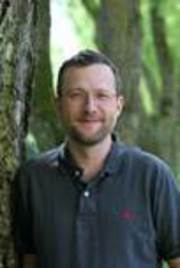 |
|
|
|
Mads Brandbyge, Technical University of Denmark, Denmark
Mads Brandbyge obtained his Ph.D. degree in physics from the technical university of Denmark (DTU) in 1997. He did post doctoral work at the University of Tokyo and at the Microelectronics Centre, DTU. In 2001 he was awarded a Skou-stipend and became associate professor at DTU. He became full professor in 2015 at DTU. His research interests concerns theory and computer simulation of nanoelectronics based on nanomaterials such as molecules, graphene and other 2D materials, nanowires and nanotubes. The focus is on electronic and heat transport calculations based on non-equilibrium Greens functions(NEGF) and density functional theory(DFT), as well as current-induced forces and atomic dynamics in nano-scale systems.
|
| |
|
|
|
|
|
| |
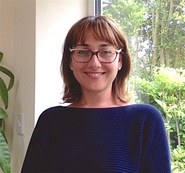 |
|
|
|
Paola Carbone, University of Manchester, UK
Paola obtained her PhD in Material Science from "Universita' Bicocca" in Milan in 2004. In 2006 she was awarded a fellowship from the Humboldt Foundation and joined the group of Prof. Mueller-Plathe in Darmstadt, where she extended her experties toward the multiscale simulations of macromolecules. In 2008 Paola was awarded a RCUK fellowship and joined the School of Chemical Engineering and Analytical Science in the University of Manchester where since 2014 she is a Senior Lecturer.
Her research is focused on using and developing state-of-art simulation techniques to predict materials properties in bulk, solutions and at interfaces
|
|
|
|
|
|
|
| |
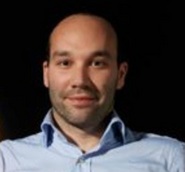 |
|
|
|
Yann Chalopin, Ecole Centrale Paris and CNRS, France
Yann Chalopin was a postdoctoral associate from 2009 to 2010 at M.I.T.
He received his M.S. (2006) in solid state physics and Ph.D. (2009) from Ecole Centrale Paris. Yann is currently a CNRS research scientist at Ecole Centrale Paris. His research interests include the theoretical aspects of nanoscale energy transport and conversion (nano-optics, nanoscale heat transport) and the development of computational methods to study physical properties of low-dimensional systems.
|
|
|
|
|
|
|
| |
 |
|
|
|
Andrew Chizmeshya, Arizona State University, USA
Andrew received his PhD in Condensed Matter Physics at Queen’s University (Canada) in 1992, specializing in first principles simulation of low temperature adsorption phenomena. He then pursued a US DOE postdoctoral fellowship in ab initio thermochemistry simulation of environmental materials, and in materials science at ASU. His research interests includes first principles thermodynamics of novel Si-Ge-Sn and III-V-IV hybrid semiconductors, and ab initio simulation of their optical/electronic properties.
He is an Associate Professor in the School of Molecular Sciences, an Affiliate Professor in the Department of Physics and Associate Director of the Professional Science Master's (PSM) in Nanoscience program at ASU.
|
|
|
|
|
|
|
| |
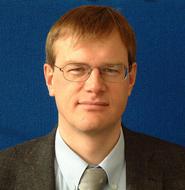 |
|
|
|
Christoph Jungemann: RWTH Aachen University, Germany
Christoph Jungemann holds the chair of electromagnetic theory at the RWTH Aachen University since 2011. His group develops codes for semiconductor device modeling of SiGe, III-V, graphene, organic semiconductors and oxides. Transport is analyzed for steady-state, RF and noise based on deterministic methods in power transistors, SiGe HBTs, plasmonics, OLEDs and RRAM.
|
|
|
|
|
|
|
| |
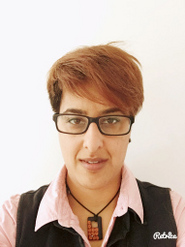 |
|
|
|
Syma Khalid, University of Southampton, UK
Syma graduated with a first class degree in Chemistry from the University of Warwick in 2000. She remained at Warwick to read for a PhD under the supervision of Professor P Mark Rodger. After obtaining her PhD in 2003, she moved to the University of Oxford as a postdoc in Professor Mark Sansom's lab, to study the structure-function relationship of bacterial membrane proteins. In 2007, she was appointed as RCUK fellow in Chemistry at the University of Southampton. In 2016 she was promoted to full professor. Her research interests are centred around the dynamics of biomolecules in and around biological membranes.
Syma has authored over 50 peer-reviewed papers and 5 book chapters and is on the editorial board of Scientific Reports. She serves on the management group that leads CCPBiosim and also the management committee of the British Biophysical Society.
|
|
|
|
|
|
|
| |
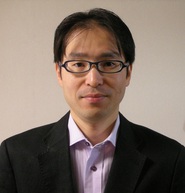 |
|
|
|
Tetsuya Morishita, AIST, Japan
Tetsuya Morishita did his undergraduate and postgraduate studies in physics at Keio University, Japan, before pursuing post-doctoral studies in polymorphism in liquids and glasses using first-principles molecular dynamics at RIKEN (Institute of Phsical and Chemical Research). He then moved to the University of Tokyo as a JSPS research fellow, and finally took up an appointment as a research scientist at National Institute of Advanced Industrial and Science and Technology (AIST) in 2003. His research activities include the development of free-energy calculation methods using molecular dynamics, exploring novel polyamorphic transitions, and modelling two-dimensional nanoscale materials. He has received Young Scientist Award from Japan Physical Society in 2009, and MSSJ Award from The Molecular Simulation Society of Japan in 2013.
|
|
|
|
|
|
|
| |
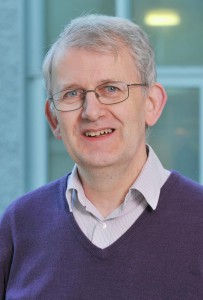 |
|
|
|
Eoin O'Reilly, Tyndall Institute, Ireland
Eoin O’Reilly received his Ph.D. in theoretical condensed matter physics from the University of Cambridge, UK, in 1982. From 1984 to 2001, he was a member of staff with the University of Surrey, UK. Since 2001, he has been with Tyndall National Institute, University College Cork, Ireland, where he is currently Chief Scientist, and also a member of the Department of Physics. His research interests include developing the fundamental understanding of photonic materials and devices, using multiscale approaches to enable the design of structures for new capabilities and applications. In 2014, he was a co-recipient of the Rank Prize for Optoelectronics, in recognition of his pioneering work on strained layer semiconductor lasers.
|
|
|
|
|
|
|
| |
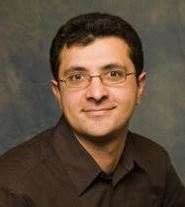 |
|
|
|
Alessandro Troisi, University of Liverpool, UK
Alessandro Troisi received his PhD from the University of Bologna (2001) and performed postdoctoral work at the Northwestern University (2002-2003) and Bologna again (2004-2005). He started in Warwick as a Research Council UK Fellow (2005) and became a professor in there in 2010. Since April 2017 he will be Professor of Materials Discovery at the University of Liverpool.
The awards received include the Marlow Award of the Royal Society of Chemistry, the ERC - Starting Investigator Award (2009) and the ERC - Consolidator Grant (2013).
|
|
|
|
|
|
|
|

